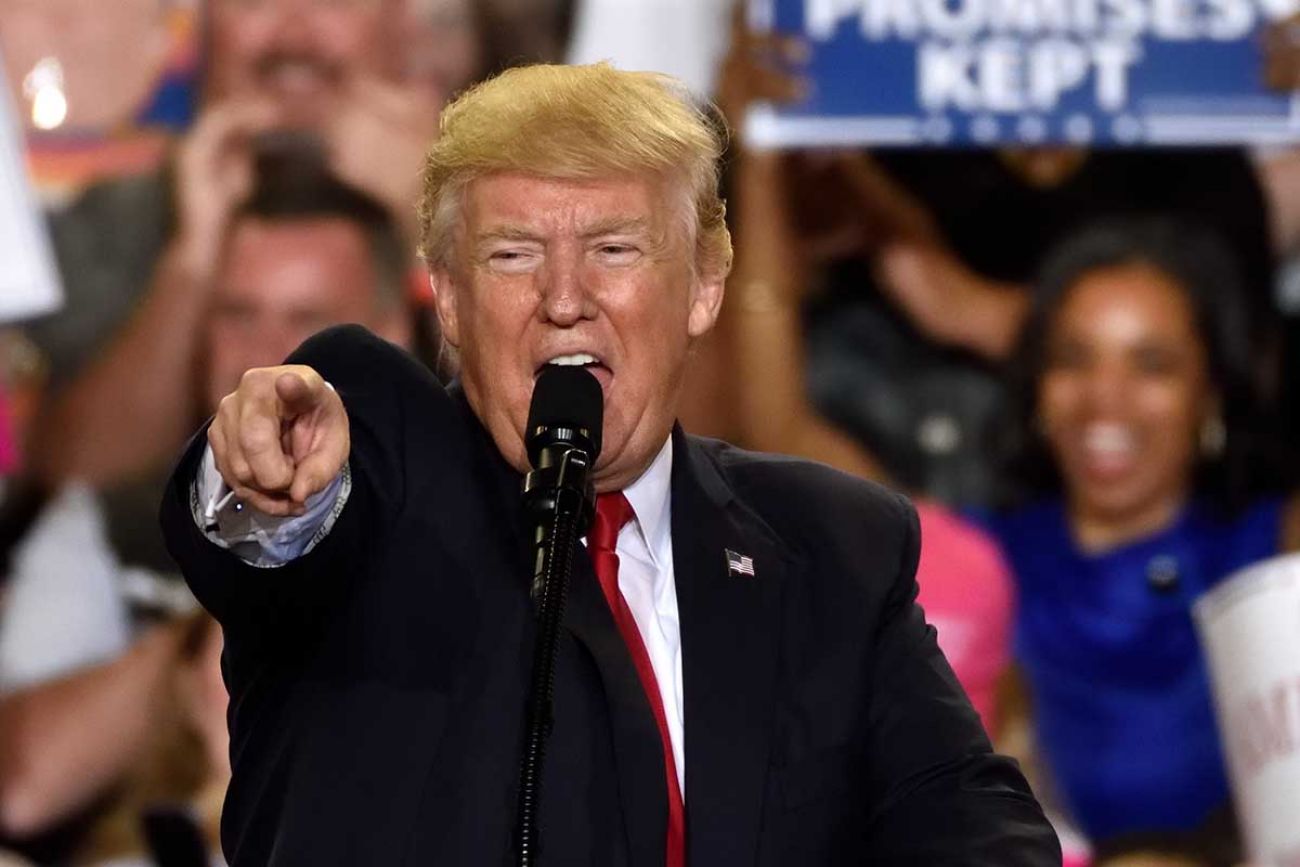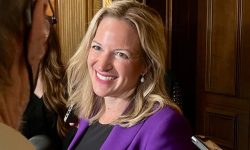Trump has one last move after Electoral College meets: imploring Congress

Members of the Electoral College will meet in Lansing and state capitals nationwide on Monday to cement the victory of President-elect Joe Biden, but even that won’t necessarily end President Donald Trump’s longshot bid to overturn the election.

Michigan’s 16 electors — mostly activists who were selected during the Democratic Party Convention in August — are set to convene at 2 p.m. in the state Senate Building in Lansing to vote for Biden, a Democrat who won the state by 154,000 votes.
The delegates are from each of the state’s 14 congressional districts and two are at-large. State law bans “faithless electors,” meaning they are bound to vote for their pledged candidate. If they don’t do so, their vote won’t count and they will be replaced.
The process will occur nationwide, and is expected to give Biden 306 electoral votes, well over the 270 required to secure the presidency.
Meet the electors
1st district: Chris Cracchiolo of Williamsburg, businessman
2nd district: Tim Smith of Grand Haven, director of the Michigan Education Association
3rd district: Blake Mazurek of Grand Rapids, history teacher at Grandville Middle School
4th district: Bonnie Lauria of West Branch, retired auto worker
5th district: Bobbie Walton of Davison, retired government worker
6th district: Mark Miller of Kalamazoo Township, Kalamazoo Township clerk
7th district: Connor Wood of Jackson County, chair of Jackson County Democratic Party
8th district: Robin Smith of Lansing, school librarian
9th district: Walt Herzig of Ferndale, district director for U.S. House Rep. Andy Levin
10th district: Carolyn Holley of Port Huron, retired finance worker
11th district: Susan Nichols of Northville, attorney
12th district: Steven Rzeppa of Trenton, mayor of Trenton
13th district: Helen Moore of Detroit, community leader and retired social worker
14th district: Michael Kerwin of Detroit, retired auto worker
At-large: Marseille Allen of Flint Township, probation officer
At-large: Chuck Browning of Bloomfield Hills, UAW Region 1A director
That gives Trump one last move — imploring Congress to intervene — but after the Electoral College meets “it’s all over but the shouting,” said Jonathan Diaz, legal counsel for the Campaign Legal Center, a nonpartisan voting rights group based in Washington.
Here’s what remains in the process:
- At 2 p.m. Monday, electors will sign “certificates of ascertainment” of their votes which are sealed and sent to the president of the Senate, the archivist of the United States, the secretary of state and a federal judge in the district where the electors met.
- Electors' votes will be counted during a joint session of the Senate and the House of Representatives in the House Chamber at 1 p.m. Jan. 6, three days after members of the 117th Congress are sworn in.
- During the session, the president of the Senate, Vice President Mike Pence, will open and present the certificates of the electoral votes. Four tellers – two appointed from each chamber of congress – will read the votes out loud.
- Once votes are tallied, the president of the Senate will announce the candidate who has secured at least 270 electoral votes as the next president of the United States.
- Inauguration day is noon Jan. 20.
Experts said the process is unlikely to run this smoothly on Jan. 6, in part because of a vague 133-year-old Electoral Count Act which allows members of Congress to object to a state’s slate of electors during the joint session.
Some conservative activists have encouraged Republican members to do so, and Alabama Rebulican Rep. Mo Brooks has said he plans to challenge electors’ votes.
Related stories:
- Michigan electors committed to Biden, despite Trump bid to overturn election
- Joe Biden is president-elect. Here’s what has to happen before he’s sworn in
- Trump campaign lobbies Michigan lawmakers to ignore vote, give him electors
But a House member must be joined by a senator in their objection in order for both chambers to consider it. They must make the objection in writing, and usually provide grounds for the challenge, although guidelines are not laid out in the Electoral Count Act.
It's not unusual for a member of Congress to object, but it’s highly unusual for a member of the other house to join them, said Diaz, the election law expert.
In 2017, for instance, several House Democrats objected to Trump’s win. But no Democratic senators joined them in their challenge.
“There is no debate,” the former president of the Senate, Biden, said during the meeting, while denying Democrats’ motions for an objection.
As of yet, no Republican senators have said they plan to sign onto an objection. But Diaz said he wouldn’t rule it out.
If a member from each chamber does sign, the joint session is suspended while the chambers meet separately to debate the objection.
Both the Senate and the House of Representatives must agree to reject or accept the slate of electors through a simple majority.
In this case, the math doesn’t look optimal for Senate Republicans, who will be short another member; Georgia Sen. David Perdue’s term expires Jan. 3, and his seat will remain empty until a Georgia runoff winner becomes official.
This 50-48 majority leaves the GOP with little wiggle room, as several Senate Republicans have already recognized Biden as the winner of the 2020 election.
If the chambers disagree, it’s “governor's veto,” meaning Congress is obliged to abide by the electors appointed by the state’s governor, as long as they were selected before the safe harbor deadline of Dec. 8 – as was the case for all battleground states including Michigan, Wisconsin and Pennsylvania.
No two chambers have ever before voted to reject a state’s slate of electors, even in the case of faithless electors, when delegates cast their vote for a candidate other than their pledged vote.
This year is unlikely to be any different, experts said.
“There’s nothing that’s going to actually interfere with the electoral counting process and with Joe Biden receiving more than 270 electoral votes and being inaugurated on January 20,” Diaz said. “No matter how much they continue to protest and throw up smoke screens, it's not gonna change the outcome.”
This article is made possible through Votebeat, a nonpartisan reporting project covering local election integrity and voting access. This article is available for reprint under the terms of Votebeat’s republishing policy.
See what new members are saying about why they donated to Bridge Michigan:
- “In order for this information to be accurate and unbiased it must be underwritten by its readers, not by special interests.” - Larry S.
- “Not many other media sources report on the topics Bridge does.” - Susan B.
- “Your journalism is outstanding and rare these days.” - Mark S.
If you want to ensure the future of nonpartisan, nonprofit Michigan journalism, please become a member today. You, too, will be asked why you donated and maybe we'll feature your quote next time!




